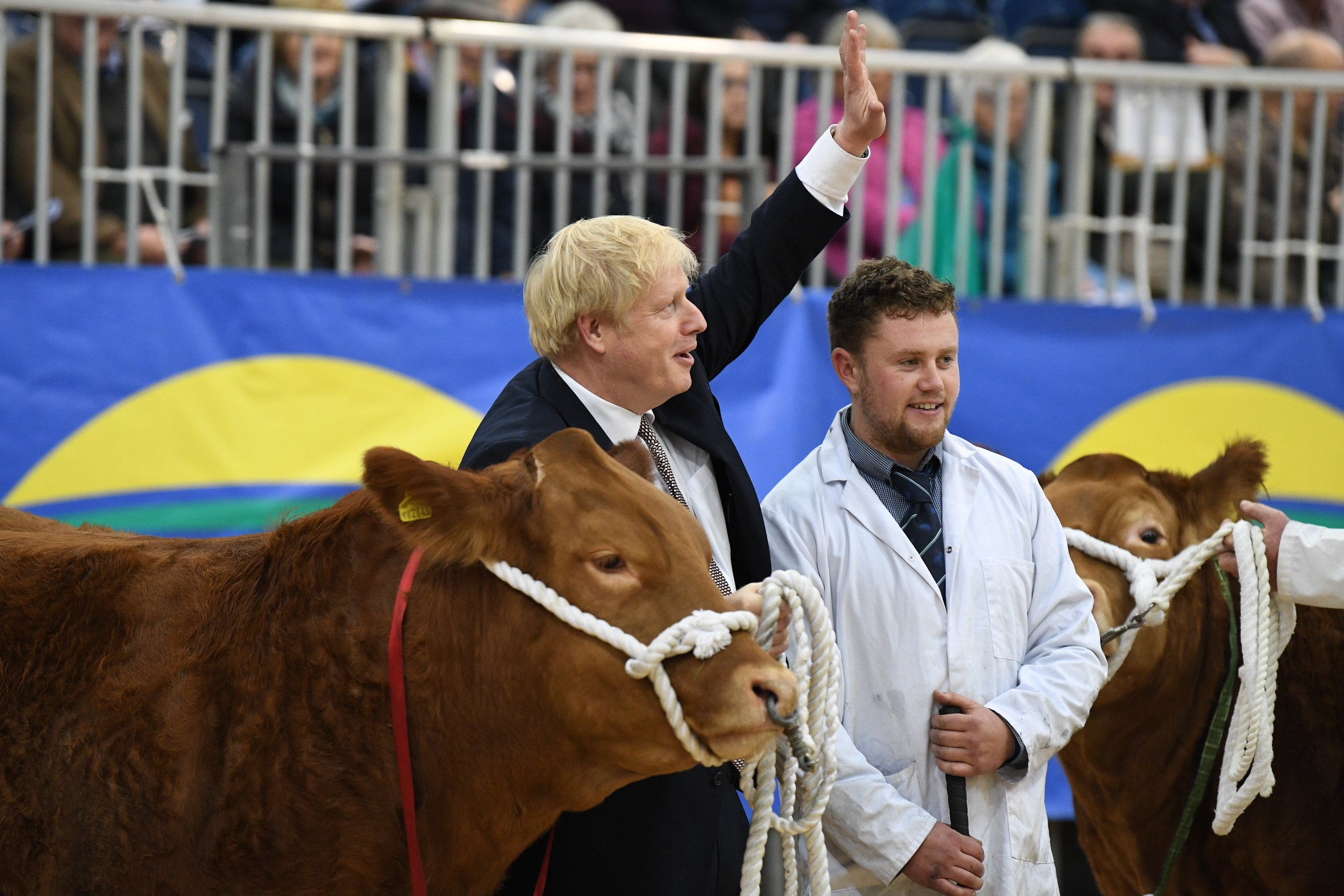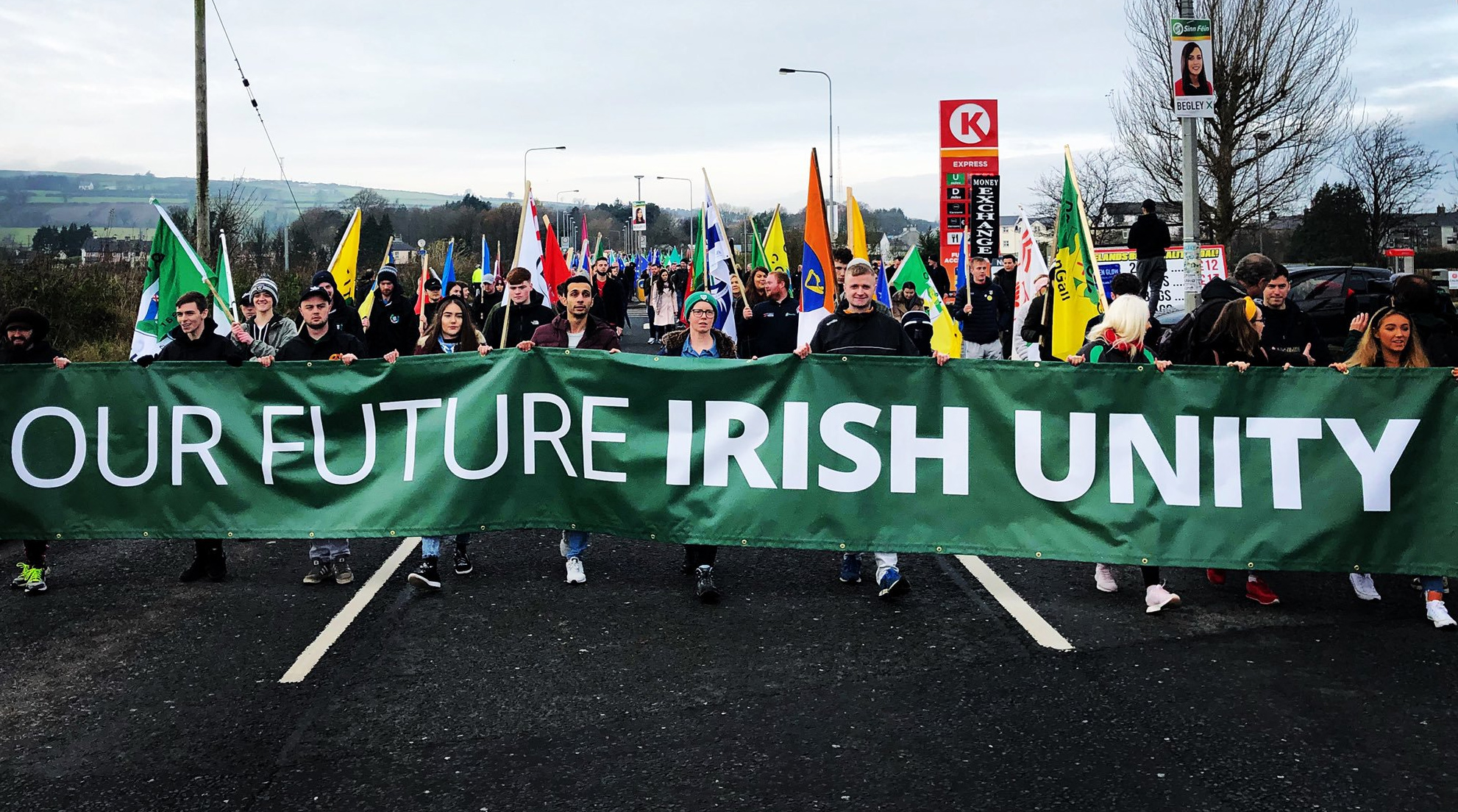News
Between Brexit and independence: the Home Countries and the UK election
Party stances on Brexit
The approval of the agreement reached on 17 October by the UK and EU negotiating delegations, sustained by Prime Minister Boris Johnson, is pending final approval by Parliament. The vote on it will take place after the election. The Conservative Party’s plan —which supports leaving the EU under the terms of the October agreement— is to have the vote held before 31 January 2020, the deadline for the UK to leave the European bloc.
The Labour Party says a Labour government will renegotiate the Brexit agreement with the EU. Subsequently, the government will call a referendum where citizens will be called to choose between that new agreement or remaining in the EU.
The Liberal Democrats say that, if they win a majority, their government will stop Brexit, and will not even call a referendum to decide it.
Centre-left parties of the Home Countries (SNP, Wales’s Plaid Cymru and Northern Ireland’s SDLP) argue for a second referendum in order to keep the UK in the EU. Left-wing Sinn Féin also opposes Brexit.
The unionist right in Northern Ireland supports leaving the EU, while the Alliance Party proposes a new referendum.
According to most recent opinion polls, the Conservative Party is likely to achieve an absolute majority (around 350 seats out of 650), allowing it to form a government without the need for agreements with other parties. Labour is set to get some 200 seats, while the SNP could become the third largest party, capturing some 50 seats. The Liberal Democrats would be left with 20.
During the term now coming to an end, the Tories have ruled in a minority, with external support from the Democratic Unionist Party (DUP, right-wing) of Northern Ireland.
Towards a stronger central State?
Brexiteers have always said that the reason for leaving the EU was to repatriate powers currently administered at Brussels. The self-government of Scotland, Wales and Northern Ireland would also benefit from that process, they used to argue in the 2016 campaign, as some of those European-held powers could be devolved to them.
Scotland and Wales, however, fear that when it comes down to it, the UK government and Parliament will generally concentrate the regained powers in central state institutions. The UK government denies this.
The Scottish and Welsh parliaments passed acts in 2018 to protect their powers after Brexit. The Supreme Court ruled that some parts of the Scottish act were illegal. The Welsh act was repealed by the Welsh National Assembly following an agreement between the Welsh and UK governments.
 Boris Johnson visits livestock fair in Wales. / Photo: Conservative Party
Boris Johnson visits livestock fair in Wales. / Photo: Conservative PartyIf Brexit becomes effective —as it looks likely if the Conservative Party wins the election— Scotland and Wales are likely to be pushed back into demanding the devolution of some regained powers from the EU. This was the SNP’s stance a year ago, although the call for a second independence referendum is now eclipsing that.
Johnson says “no” to another self-determination referendum in Scotland
But UK Prime Minister Boris Johnson says he will not negotiate the Scottish government’s plans to hold another independence referendum: “I’ve made it very clear that the people of Scotland were told emphatically in 2014 that this [the referendum] was a once in a generation event, and they were promised that they would not be driven to the polls.”
But the Scottish government and the pro-independence majority in the Scottish Parliament consider Brexit to be a constitutional break from the 2014 status quo and that, as a consequence, a second referendum is now appropriate.
According to the most recent polls, there is a technical tie between supporters and opponents of independence.
If Johnson keeps his word, the only option for organising an agreed referendum would be a Labour win —unlikely as it is—, preferably for the SNP in a hung parliament, in order to be able to put pressure on Corbyn’s party. Corbyn has ruled out a referendum during the first years of his term, but he has not closed the door to compromise later.
Regardless of the referendum, the SNP seeks to negotiate the transfer of powers from London to Edinburgh in the areas of immigration, jobs, and drug legislation. It also proposes to introduce a bill to protect the public healthcare system (NHS) throughout the UK from eventual privatisation.
Plaid Cymru aims for independence by 2030
While the SNP wants to hold the second referendum as soon as possible, in Wales Plaid Cymru also seeks to hold a self-determination vote, in its case before 2030. Plaid says it will pursue that goal if the party is able to form a government in Wales after the 2021 election. According to opinion polls, that is a difficult, but not impossible, outcome, given that the party shows a slight upward trend.
Meanwhile, the pro-independence party is calling for the transfer of fiscal, judicial, economic development, social welfare and cultural powers in Wales, as stated in its manifesto.
Like the SNP, Plaid Cymru also vows to support a bill protecting the system of public healthcare.
The Welsh government is currently led by the Labour Party. Labour’s election manifesto includes increased social spending and investments in Wales. On the constitutional aspects, it proposes replacing the House of Lords with a “Senate of Nations and Regions” and rethinking the distribution of powers through a Constitutional Convention.
In that forum, the Welsh government says it will seek to argue for its proposal for a reform of the United Kingdom institutions to strengthen the power of the four Home Countries in the common governance of the State.
Northern Ireland: multiple polarisation
The political landscape in Northern Ireland before the election shows multiple polarizations in different axes.
The Northern Ireland Assembly has been suspended since 2017. All parties have pledged to resume negotiations after the UK election to reach an agreement and form a government. But Northern Ireland’s two largest parties Sinn Féin and DUP remain far apart on a number of key issues. The former —with support from the SDLP— want an Irish language law to be passed, which the latter reject. Sinn Féin and the SDLP also advocate the legalisation of same-sex marriage and the decriminalisation of abortion, which were approved by Westminster last month. The DUP opposes that.
Brexit negotiations have taken place against that background. The issue of the border between Northern Ireland and the Republic of Ireland remains a central aspect. The Brexit deal now provides that Northern Ireland will remain within the British customs union. But in practice the territory will continue to be subject to various EU tax rules, a situation which the DUP does not agree with. The Northern Ireland Assembly will be able to vote in 2024 on whether to abandon this system.
 March for Irish unity, November 2019. / Photo: Irish Unity
March for Irish unity, November 2019. / Photo: Irish UnityAs in the rest of the United Kingdom, the election will be read as a plebiscite on Brexit. Party positions are far apart. The DUP wants the UK government to once again renegotiate the exit agreement in order to eliminate specificities applied to Northern Ireland. The other main unionist party, the UUP, also supports leaving the EU.
At the other end, Sinn Féin wants to stop Brexit and set a date for a referendum, over the next five years, on Ireland’s reunification. Since 2017 and for the first time, several polls suggest that the unity of the island could be the majority option in a vote, although according to other surveys the opposite is true.
Cornwall’s battle for better funding
Without having a devolved Parliament, Cornwall —the smallest of the UK’s Celtic nations— has a more limited margin of autonomy. The Cornwall Council has executive, but not legislative, powers.
The Council’s cabinet, made up of members belonging to the Liberal Democrats and independents, is currently calling for “adequate funding” from the UK to be able to “protect local services” delivered to a 570,000-strong population.
The Liberal Democrat election manifesto includes their commitment to legislate to “establish devolved governance” towards new authorities, “for example to a Cornwall Assembly or a Yorkshire Parliament,” without clarifying whether such bodies will have law-making powers or not. Neither the Labour nor the Conservative manifesto envisage anything of the kind.
Dick Cole, a candidate for the pro-autonomy Mebyon Kernow (MK, centre-left), is running for election. MK calls for the establishment of a devolved National Assembly for Cornwall, with ample law-making powers.
Gibraltar: preparing for a tough border
Gibraltar does not take part in the UK election, although its future depends in part on what happens in the 12 December vote. The UK government will invest more than 1 million euros in Gibraltar in new infrastructure that could mitigate possible negative impacts on the territory in the event that, after Brexit, the transit of goods and people with Spain becomes more difficult.
Chagos Islands: unlikely return to Mauritius
To conclude this review, a brief news on a UK territory outside Europe having no direct relationship with Brexit issues but with the election: the Chagos Islands, an archipelago under British sovereignty in the Indian Ocean.
The International Court of Justice (ICJ), first, and the General Assembly of the United Nations, then, have asked the United Kingdom in 2019 to decolonise the archipelago. These are two non-binding petitions that the UK government has decided to ignore, at least in the short term. The Conservative Party has no stated intention of changing its policy in this regard.
Decolonization, according to the ICJ opinion, would involve transferring sovereignty over the Chagos to the Republic of Mauritius. Corbyn has said he would accept the court’s opinion if elected prime minister. The Labour Party manifesto, however, only talks about guaranteeing the right of return of Chagos Islanders to their archipelago, from where they were expelled five decades ago.
